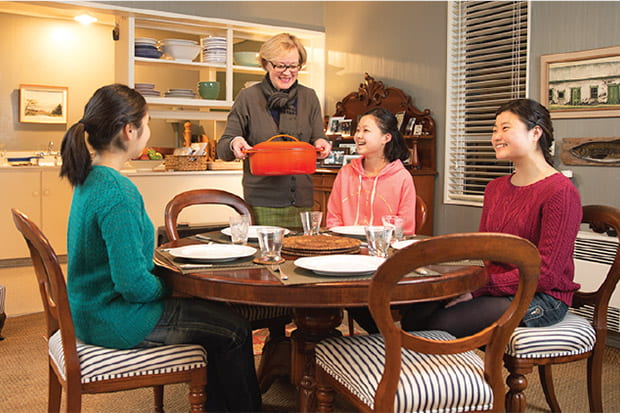Embarking on a global adventure for your academic pursuits is an exciting and enriching experience. The journey to a cross-cultural destination opens up a world of opportunities not only academically but also in terms of personal growth. One of the key aspects of your study abroad or away experience is finding the right place to call home during your time in a new destination. Let’s delve into the various housing options available to study abroad or away students exploring the globe.
1. Hotels and Hostels
For the traveler seeking a mix of comfort and community, hotels and hostels can be an excellent choice. Hostels, in particular, foster a vibrant atmosphere where you can meet fellow global explorers. They often offer budget-friendly options and are strategically located for easy access to the pulse of your destination. Due to the shorter nature and mobility of most faculty-led programs, staying in a hotel or hostel is a common occurrence for TU students studying abroad. Note: If you are a participant on a faculty-led program, your housing accommodations will be arranged by the Study Abroad & Away Office and the partner we work with facilitating all the logistics on-site. You are not responsible for booking a hotel or hostel yourself!
2. Host Families
Immerse yourself in the local culture by choosing to stay with a host family. This option provides a unique opportunity to build meaningful connections, experience daily life from a local perspective, and create lasting memories. Living with a host family can offer insights into customs, traditions, and local cuisine that you might miss in other housing arrangements. Host family arrangements are more commonly found on language immersion programs, including faculty-led programs, but host family options can be found on several other programs, as well.
3. Sharing with Roommates

Whether you’re paired with fellow Towson students or local peers, sharing accommodation with roommates fosters a sense of camaraderie. This option is ideal for those who enjoy a social environment and want to navigate the challenges and triumphs of their study abroad or away experience with companions.
4. Student Dormitories
Global universities often provide student dormitories equipped with essential amenities. Living in a dormitory can offer a supportive community of like-minded individuals, making it easier to transition into academic life in a new and unfamiliar setting. Oftentimes there are a range of dormitory options for you to choose from, just as there are here on-campus at TU. Some programs may require exchange and visiting students to live in a designated living space where they can mingle with local students and receive additional support during their stay. Depending on where you are in the world, you may find yourself living in a student dormitory that is not managed by your host institution but is the standard living option for local students at your host institution, and maybe even a few other schools in your city. This opens up the possibility for you to expand your network of local students!
5. Off-Campus Apartments
Venture beyond the campus borders and consider off-campus apartments for a taste of independence. This option allows you to experience the local community more intimately and develop a deeper understanding of your destination’s lifestyle. Make sure this option is available for your program so that you have the support to make housing arrangements independently.
6. Self-Catered Apartments
For those who prefer more autonomy over their meals and daily routine, self-catered apartments are a great option. These accommodations do not include a meal plan and typically come equipped with kitchens, giving you the freedom to explore local markets and prepare your own meals. Many students find this to be a more cost-effective way to budget for their meals as self-catered apartment contracts are often lower in price. Self-catered apartments are a great option as well for those with specific dietary restrictions or allergies. Though you wouldn’t have a meal plan with a self-catered apartment contract, you would still be able to purchase food and meals at the eatery locations offered by your host institution.
7. Camping

For the adventurous souls, camping is a unique and immersive housing option. We should note that this is not a regular housing option for the duration of your study abroad or away experience, but rather an element that may sometimes take place on some of our more remote faculty-led programs! While the option to camp is not always practical, students may find that camping can provide an unparalleled connection with nature and the surrounding environment, offering a break from the hustle and bustle of city life. Those spending time abroad or away for longer durations might enjoy spending their free time exploring options to camp nearby. We recommend that you spend time doing your research to ensure you have a safe and healthy camping experience if you are interested in pitching your tent!
As you embark on this exciting chapter, remember that your housing choice is more than just a place to stay – it’s a vital part of your global education. Embrace the diversity of options, and you’ll find that the right accommodation can enhance your study abroad or away experience in ways you never imagined.
If you have any questions or concerns, you can contact our office at (410) 704-2451, or email studyabroad@towson.edu and peeradvisor@towson.edu. We are located in PY 408, open Monday-Friday, 9am-5pm.
